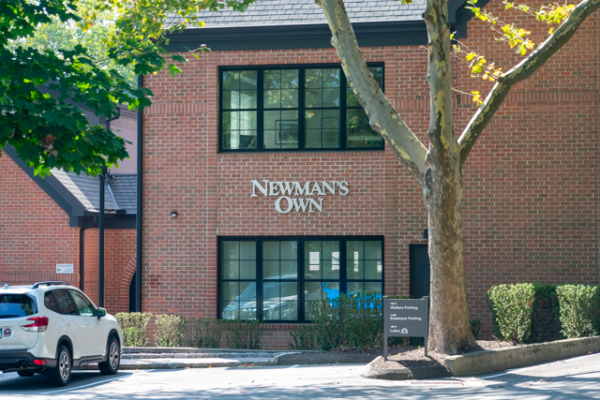In a case filed with the Superior Court of Stamford-Norwalk on Aug. 23, two daughters of late actor/philanthropist and Westport resident Paul Newman are suing the foundation that bears his name.
Susan Kendall Newman and Elinor T. “Nell” Newman are named as plaintiffs, alongside the charitable organizations, which were established in their names by their father. The sisters are seeking $1.6 million in damages and are also seeking assurances that their foundations will each be given $400,000 annually to spend on charitable work, claiming their father explicitly stated that sum was to be given to the foundations set up for all five of his daughters. The money originates from the proceeds earned by the popular Newman”™s Own grocery product line ”” the foundation receives 100% of the after-tax profits from the product”™s sales to support various educational and charitable organizations.

The lawsuit claimed the Newman”™s Own Foundation has only provided each daughter”™s foundation with $200,000. According to the lawsuit, the foundation almost immediately altered the plans that Paul Newman had laid out in living wills, recorded statements and written correspondence in the years prior to his death in 2008.
Allegedly this was done at the direction of then-president Bob Forrester and Brian Murphy, a business associate of Newman, and within four days of the actor”™s passing the funds provided directly to the foundation for each daughter were replaced with a “Grant Recommendation Program,” which eliminated annual payments of “up to $100,000 in market-based compensation for each daughter”™s work” on behalf of their respective foundations while changing the women”™s roles in their philanthropic endeavors.
The lawsuit stated the foundation”™s action was the start of a “long march of disregard for Mr. Newman”™s stated intentions,” although it does note that Forrester is no longer involved with the foundation ”” he was ousted as president in 2019 following an investigation of alleged inappropriate behavior toward female employees. Murphy is currently a member of the foundation”™s board of directors, but neither individual is named as a defendant in the lawsuit.
Furthermore, the lawsuit stated that the foundation”™s actions violated the terms of using the rights to Paul Newman”™s name and likeness because that was predicated on the requirement that each daughter”™s charity receive $400,000 per year. It also lists a number of other alleged departures from previous wills and statements, including a codicil bequeathing one of the racing cars Newman collected to his personal driver and the defunding of the Scott Newman Center, a substance abuse and domestic violence prevention-oriented nonprofit named for Newman”™s late son. Also noted was the foundation”™s 2015 decision to not renew the licensing agreement with Newman”™s Own Organics, a separate nonprofit founded by Nell Newman and her father before his death.
Rumors of conflict between the foundation”™s leadership and Newman”™s heirs received prior media attention, including a 2015 feature in Vanity Fair, but this lawsuit represents a new phase of the conflict.
Newman”™s three other daughters ”” Stephanie Kendall Newman, Melissa Stewart Newman and Claire Olivia Newman ”” and their respective charitable organizations are not parties to the lawsuit.
When reached for comment, a spokesperson for the foundation provided a statement indicating that the board is faced with difficult decisions about how to use limited resources while complying with 501(c)(3) organization rules.
“Best practices surrounding philanthropic organizations do not allow for the establishment of perpetual funding allotments for anyone, including Nell and Susan Newman,” the statement said. “A meritless lawsuit based on this faulty wish would only divert money away from those who benefit from Paul Newman”™s generosity. While we expect to continue to solicit Newman family recommendations for worthy organizations, our funding decisions are made each year and will continue to reflect the clear aim of Paul Newman and our responsibility to the best practices governing private foundations.”





















